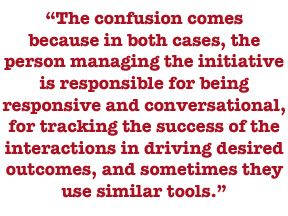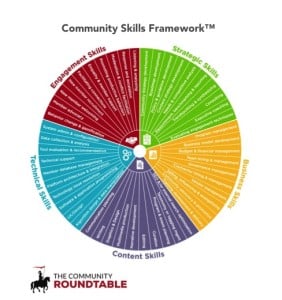The Community Roundtable has partnered with Voce Communications to produce a new podcast series, “Conversations with Community Managers.” In this series, TheCR’s Jim Storer joins forces with Voce’s Doug Haslam to speak with people from a variety of industries about their efforts with community and social media management.
Our third episode features an interview with Ryan Paugh, co-founder (with Ryan Healy and Penelope Trunk) and Director of Community for Brazen Careerist.com. From their web site:
Brazen Careerist is a career management tool for next-generation professionals. It exists to give everyone an opportunity to build and nurture a network of trusted peers. Think of it as a 24-7 virtual networking event, filled with people who can help you get ahead in your career.
Conversation highlights include:
- The challenge of managing a community where the community is the product
- How much attention to pay to “tone” when your community caters to a specific demographic (in this case, “Generation Y”)
- The role of passion for your topic/category when managing a community
- The freedom to mix in new tools and technology with a community of early adopters
Download this episode.
Subscribe to this podcast series.
MUSIC CREDIT: “Bleuacide” by graphiqsgroove.
About Conversations with Community Managers*
To better reflect the diverse conversations our podcast covers we’ve changed the name of our long-running series to Community Conversations.
Community Conversations highlights short conversations with some of the smartest minds in the online community and social business space, exploring what they’re working on, why they do what they do, and what advice they have for you.
These episodes are a great way to begin to understand the nuances of community strategy and management.
Each episode is short (usually less than 30 minutes) and focuses on one community management professional.
Podcast: Play in new window | Download





 [This post is the first in an on-going series of posts by a members of The Community Roundtable, highlighting the voices of experienced community managers. It is cross-posted at Dawn’s blog,
[This post is the first in an on-going series of posts by a members of The Community Roundtable, highlighting the voices of experienced community managers. It is cross-posted at Dawn’s blog,  Mark
Mark
![Reblog this post [with Zemanta]](https://img.zemanta.com/reblog_e.png?x-id=b4dabb9c-66a5-4e16-a721-9155e2518b38)
